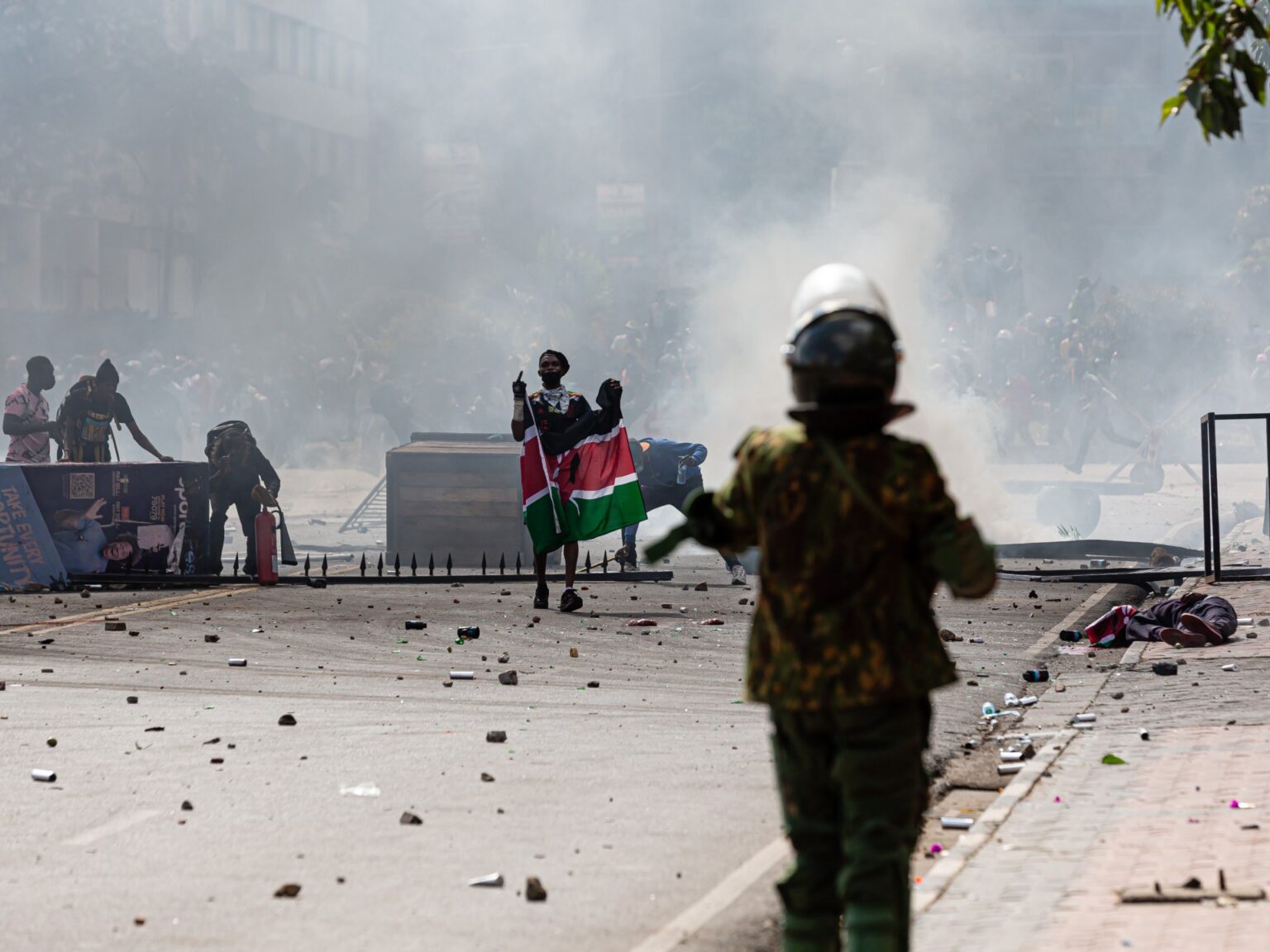When the Kenyan government blocked the public screening of a BBC documentary investigating the military’s role in the killing of protesters, it was about more than censorship. It was about protecting a decades-old pact – a silent agreement between the military, the state, the media, and the public: the army stays out of overt politics, and in return, no one looks too closely at what it’s doing.
That pact is now under threat, and the backlash has been ferocious.
Government-aligned MPs have accused the BBC of inciting instability, calling for the broadcaster to be banned from operating in Kenya. Social media campaigns have been launched under hashtags like #BBCforChaos, framing journalism as sabotage. But what is really being defended is not national security, it’s the manicured silence that has kept Kenya’s military above scrutiny.
This decades-long silence has been carefully cultivated since independence. Two failed military coups, in 1971 and 1982, and the terrible records of military regimes across the continent, instilled a lasting fear of soldiers as political actors. To avoid future insurrections, successive governments kept the army well-watered and fed in their barracks and out of the headlines. In return, the public – and especially the media – looked away.
No see, no coup.
But behind the scenes, the Kenya Defence Forces (KDF) were growing in strength. Throughout the 1990s and 2000s, they expanded their capabilities, acquired new hardware, and cultivated a myth of discipline and professionalism.
The invasion of Somalia in 2011 brought the KDF out of the shadows. Now centre stage, the military took up the banner of patriotic warriors fighting terrorism and instilling discipline into the famously corrupt civilian public service. In the following decade, the administration of President Uhuru Kenyatta appointed retired and serving military personnel, including the then-defence forces chief, to a variety of civilian governance roles. But as the military’s power and visibility expanded, there was little expanded public oversight and scrutiny.
This is despite the very public failures that came in the aftermath of the ill-advised invasion which shattered the myth of integrity and competence. The invasion itself, launched to great media fanfare, was soon bogged down. After a yearlong slog to the Somali port of Kismayo, Kenyan troops were almost immediately implicated in a smuggling racket, trafficking sugar and charcoal out in collusion with al-Shabab, the very enemy they were sent to fight. In 2016, at least 140 soldiers were killed in a single al-Shabab attack on the KDF base in El Adde – Kenya’s deadliest battlefield loss.
Back home, things weren’t going much better. The invasion inspired a wave of terrorism. The KDF’s bungled and criminal response to the 2013 attack on the Westgate mall in downtown Nairobi which killed 68 people, badly exposed it. Soldiers systematically robbed the mall while pretending to battle terrorists. Less than two years later, the military was back in the news, having again bungled the response to an attack on the Garissa University College, which left 147 people dead.
Throughout all this, the military responded with silence and spin. There was no public inquiry. No reckoning. No accountability. Similarly, there were few calls for accountability when the KDF grabbed a chunk of Lenana Road, a major Nairobi thoroughfare, to expand its headquarters, or when its top brass were implicated in attempts to influence the 2022 presidential election. None of these incidents sparked serious media investigation or political debate about the military’s role.
Kenya’s mainstream media have largely internalised the terms of the pact. Defence reporters rarely publish anything critical of the army. Many function more as conduits for military press statements than as independent journalists. The KDF, in effect, enjoys a veto over how it is portrayed.
That’s what makes the BBC documentary so dangerous – not because it poses a real threat to stability, but because it disrupts the performance of silence. It challenges the idea that the military is untouchable, and that truth about its conduct must be suppressed for the greater good.
But a viable democracy cannot be built on fear. Kenya cannot thrive while shielding one of its most powerful institutions from public accountability. If journalists are vilified for telling the truth, and if media houses censor themselves to stay in favour with generals, then the line between civilian rule and military impunity is already dangerously thin.
The real threat to national security is not the BBC. It is the refusal to confront the army’s failures and abuses – and the willingness of so many to stay silent in the face of them.
Kenya must break the pact. The military must be accountable not just to its commanders, but to the people. And journalism must be free to expose the truth, even when it makes the people with guns uncomfortable.
The views expressed in this article are the author’s own and do not necessarily reflect Al Jazeera’s editorial stance.
Read the full article here

